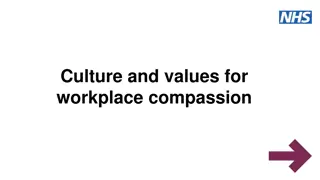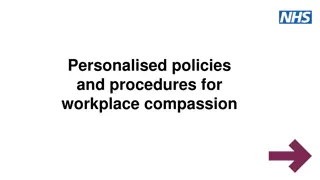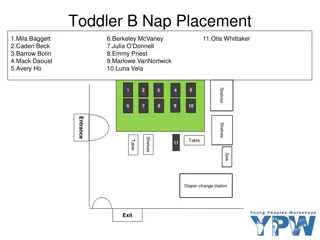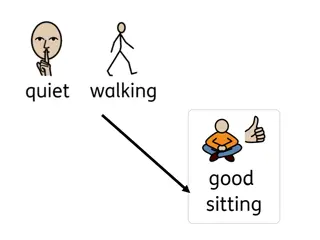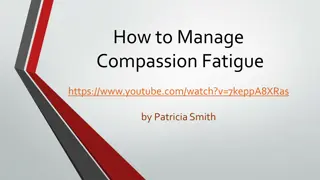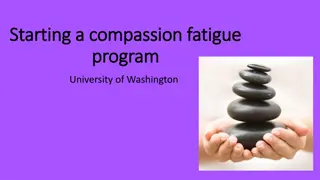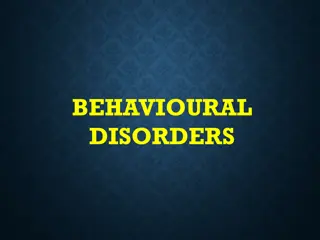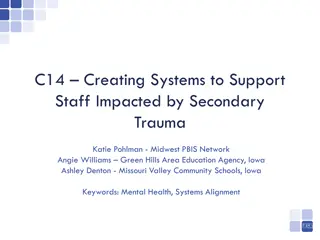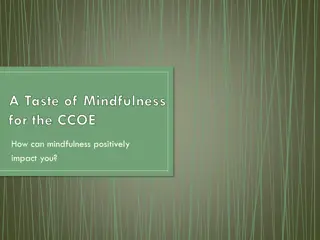Managing Toddler Tantrums with Compassion
As a parent, understanding and effectively handling toddler tantrums is crucial. Tantrums can result from overwhelm, distress, or boredom, and responding with compassion and appropriate strategies can help children learn to manage their emotions. Recognizing triggers, offering comfort, and using distraction techniques are important tools in diffusing tantrums and nurturing emotional development in children.
Download Presentation

Please find below an Image/Link to download the presentation.
The content on the website is provided AS IS for your information and personal use only. It may not be sold, licensed, or shared on other websites without obtaining consent from the author.If you encounter any issues during the download, it is possible that the publisher has removed the file from their server.
You are allowed to download the files provided on this website for personal or commercial use, subject to the condition that they are used lawfully. All files are the property of their respective owners.
The content on the website is provided AS IS for your information and personal use only. It may not be sold, licensed, or shared on other websites without obtaining consent from the author.
E N D
Presentation Transcript
Five maneuvers for a toddler tantrum
Mummy Owl: My daughter isnt even sure why shes throwing a tantrum but she s pretty sure it will help. Marcy G: My toddler was having a massive tantrum until she found a grape on the floor. She ate it, and forgot why she was crying. She was crying because she doesn't like grapes. Tweets on temper tantrums Wtfdad: My toddler s tantrum over the door being open was only surpassed by his tantrum over the door being closed. Henpecked Hal: Last night, my 3 year old kicked me during a tantrum. As I tucked him in bed later, he apologized. "I'll never kick you again," he said, pulling me in closer and kissing my cheek. "Just do exactly what I tell you to do and I'll never have to kick you again." My son is a mobster.
Born out of an overwhelmed brain. Come out of a brain still learning socially acceptable ways of communicating strong emotions. The result of a brain shut down to rational thought and instead acting purely on basic instincts (fight/flight) and emotions. The results of real emotional pain: no control; deep frustration; loss; disappointment; feeling misunderstood. They are scary for the child themselves. Key times for brain sculpting. What are tantrums?
Two different types of tantrums: A distress tantrum or a little Nero tantrum
One or more of your childs basic instinct alarms have been triggered, those of rage, fear and separation distress Your child s arousal system is out of kilter and is dumping large levels of stress chemicals into their brain. Your child hasn t yet developed the neural pathways in their brain that help them deal with too big feelings. Not possible for them to reason themselves or understand your reasoning Distress tantrums are serious business and need to be responded to with compassion. Doing this will set them up for a lifetime of being able to best manage their big emotions. Distress tantrums
Boredom or under stimulation. How can we help our child with their distress tantrum? Picking up on your stress Express your feelings appropriately. Uses simple, calm actions Prevention is better than cure Offer comfort Distraction can work wonders Choose your battles Tiredness and hunger Look for triggers Sometimes food can be a trigger
A whole different ball game to distress tantrums. Little Nero tantrums are about control and manipulation. No anguish, desperation or panic, no stress hormones flooding their systems. Thinking brain is fully engaged. The focus of the tantrum is on bullying a person into giving them what they want. Little Nero Tantrums
How can we help our child with their Little Nero tantrum? Distinguish between a little Nero tantrum and a distress tantrum Don t provide your child an audience. If your child is hurting others or himself remove him away from others. Don t try and reason, argue with or persuade Don t kiss it better . Use humour and play when appropriate. Educate your child about the benefits of using social charm. Don t negotiate Give clear, firm No s .
Resources For a couple of articles on Temper Tantrums and a copy of the notes for this talk go to: http://www.phoenixplace.com.au/resources/ Books mentioned: When I m Feeling Trace Moroney My Calm Me Down Book Trace Moroney














